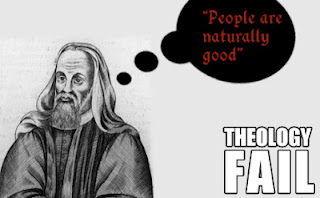No, it is not December. Nor
is today’s post part of any Christmas pageant, yet Luke 2:14 (ESV) reads
“Glory to God in the highest, and on earth peace among those with whom
he is pleased!”
The new creation that has
been created within us by the power of God is equal to the intention of the
gospel itself. The purpose of the new creation is to promote and develop
holiness in the believer. It is through holiness that we are able to honor God in
the way that He is worthy. This is the first and premier lesson taught to us by
the gospel.
“For the grace of
God has appeared, bringing salvation for all people, training us to renounce ungodliness and worldly
passions, and to live self-controlled, upright,
and godly lives in the present age, waiting for our blessed hope, the appearing of the glory of our great God
and Savior Jesus Christ, who gave himself
for us to redeem us from all lawlessness and to purify for himself a people for his own possession who are zealous
for good works.” (Titus 2:11-14, ESV)
The purpose of God in
creating a new creation in the soul of man is for the glory of God.
Regeneration changes everything for a man. Not only does it change his disposition,
his character, and his eternal destiny, regeneration changes the sole reason
for the existence of a redeemed man.
Therefore, our redemption is
not only in anticipation of future bliss, but it designed that we would live to
God. We are called to live according to the intent and purpose of our gospel
redemption.







